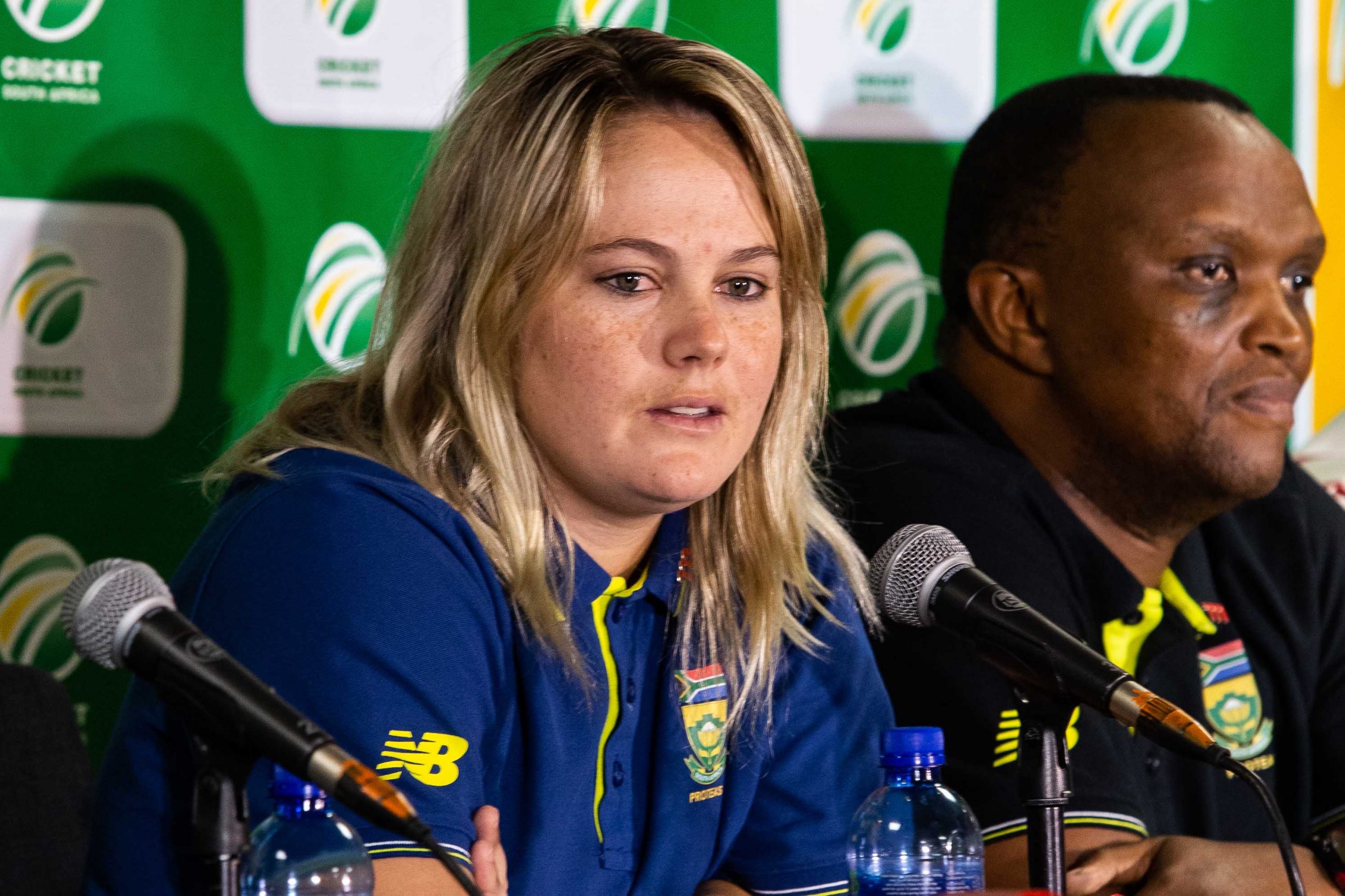Women’s cricket stands against gender violence
The Proteas Women were supposed to play a Black Day match to raise awareness about South Africa’s struggle with gender-based violence. Its postponement doesn’t mean the fight is off.
Author:
6 May 2020

Sunday 22 March was supposed to be a landmark day for women’s cricket in South Africa. The Proteas Women, led by Dané van Niekerk, were scheduled to play a one-day international with added significance. It was supposed to be the inaugural Black Day at Kingsmead Stadium in Durban.
The opponents would have been new Women’s Twenty20 World Cup champions Australia, on a day that was supposed to raise awareness about the rise in femicide and gender-based violence in this country. The game was to be the first of a three-match series against the side that narrowly defeated South Africa in the semifinals of the recent T20 World Cup held in Australia.
That event closed in emphatic fashion, as a record 86 174 crowd watched an iconic final at the Melbourne Cricket Ground, the highest attendance ever at a women’s cricket event.
Black Day was supposed to raise awareness about the increase in violence towards women and children, at a rate that shows no sign of slowing down. But like so many other sporting events around the world, it has been postponed indefinitely by the Covid-19 pandemic.
“It’s a pity it is not happening right now, but that is obviously understandable. When it does happen, it will be an important day for us, because it is something that we want to stand up for. Strongly,” Van Niekerk bristled.
She spoke of the need to present a united front and how the event was a sign of their growing influence as a team in South Africa. But as she spoke, her voice trailed away. She was distracted by a strange-looking man walking past her and her wife, Marizanne Kapp.
Related article:
Even over the phone, you could sense her trepidation. She apologised for losing her train of thought, but it was a very real dose of daily life for women in South Africa. There are no safe spaces in the country for women to occupy and Black Day is supposed to be a strong reminder of that sense of injustice and lack of freedom.
“Wearing black is a small thing, but standing up for women and children is something we feel very strongly about. Sometimes we forget the platform and impact that we have as sportspeople, but this is an opportunity to use that,” she added.
Game for a good cause
The idea behind Black Day is something that has been brewing for a long time in the confines of the Cricket South Africa (CSA) offices, according to chief commercial officer Kugandrie Govender.
“We saw a need as the business to have an annual, standalone women’s marquee event. We set out to create that, and then encountered August 2019,” Govender explained. “If you remember, there were all these tragic stories of young women who had been brutally raped and murdered in the most horrific circumstances. It was relentless.”
That was the tipping point and the CSA resolved not to stay silent any more. They saw the opportunity to combine the two and decided to put the plans that were already afoot into action to mark a specific day for women’s cricket.
Govender said the new sponsorship deal between Momentum and the Proteas Women hinged around an event of this magnitude. Momentum has been a strong ally of women’s cricket for a long time.
Related article:
It is a leap, but it is also a mark of the elevation of the women’s game. They want to stand alone as a brand and have their own poster players to inspire communities.
“We have gone to Pink Day a few times and it’s always been such a thrill,” said Van Niekerk. “The boys seem to get up for Pink Day even more, and it is something that we look forward to doing with Black Day.”
The focus of the day is to encourage a sense of family and respect, and Govender said they hope to use the fun element that comes with a day at the cricket for greater good.
“These are some really dark topics that we are talking about. Pink Day is about breast cancer. Black Day is about domestic violence, which are things that people don’t talk about easily,” said Govender. “If we have the opportunity to use that fun environment that is cricket to look deeper at all those dark crevices, then we absolutely must.”
The inaugural Black Day was to be held at Kingsmead because KwaZulu-Natal has been identified as a hotbed of gender-based violence. The plan was to send a strong message to the public in the province and confront an extremely grim issue head-on.
Growth of the Proteas Women
As their media profiles rise and rise, Van Niekerk and her team are more than happy to shoulder the burden of responsibility for social issues, too.
“Women’s sport has grown over the past few years. If you look at the impact of the US Women’s soccer team, both by winning the World Cup and then the issues that they raised, they are a real inspiration.
“From a cricket perspective, the Australian women’s team has certainly taken the lead for us, and they have set a great benchmark. It is up to us to be part of the change,” said Van Niekerk.
Related article:
The Aussies, as if scripted, won the T20 World Cup on home soil by beating India, who had upset them in the opening game. For organisers and sponsors, it was the dream finish. For Van Niekerk, the occasion was a testament to where the game has gone, even if she would have preferred experiencing it all in person.
“Sadly, I watched that final at home,” Van Niekerk sighed, still lamenting what very nearly was. But beyond the disappointment, there was pride in what her sport is achieving. “Growing up, I never thought that I would see 86 000 people at a women’s sports event. It was amazing,” she exclaimed.
The baton has now been passed on to South Africa, who will host the next Women’s T20 World Cup in 2022. Before that happens though, there are some bleak issues that need to be brought to light.



